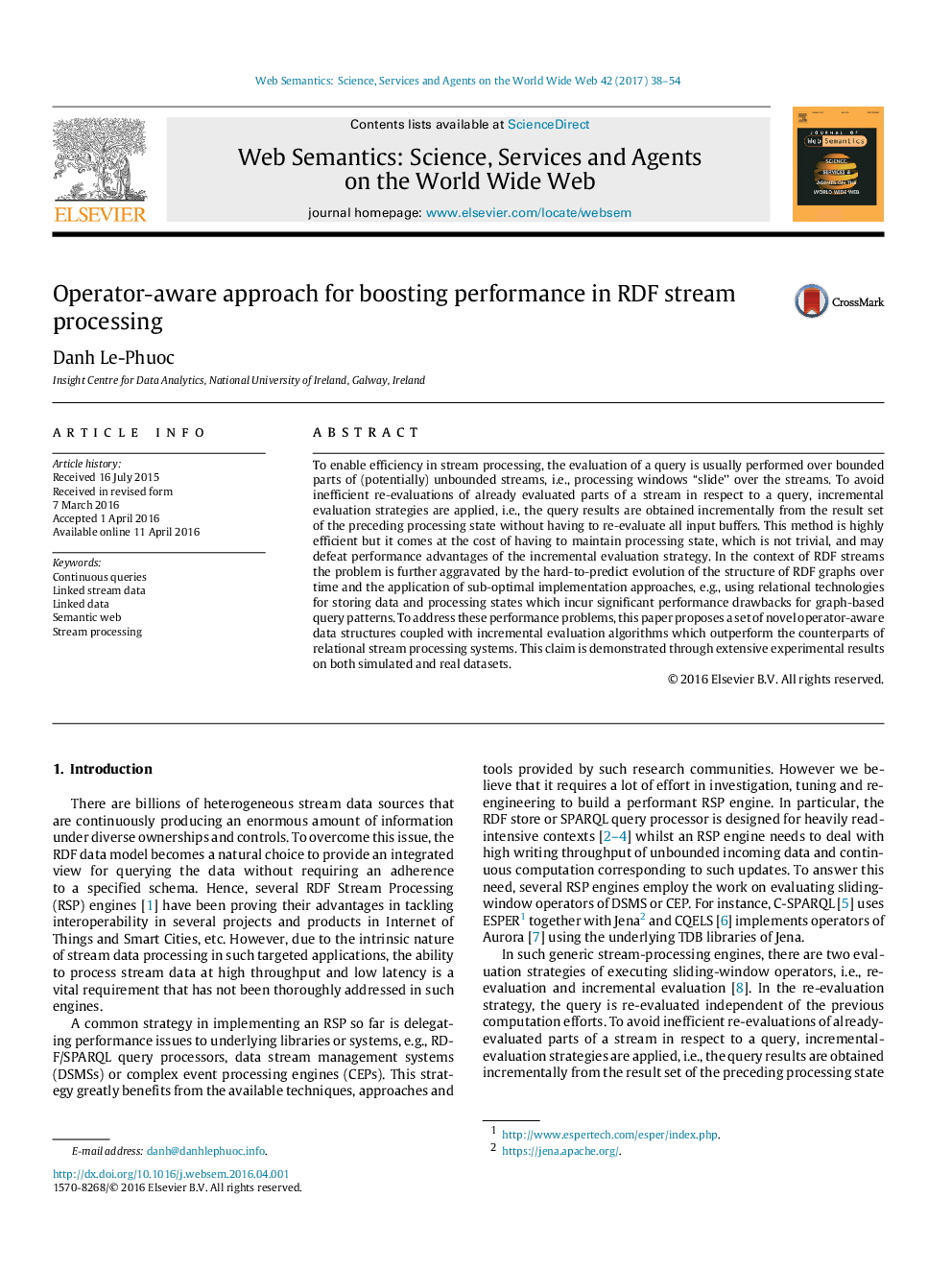| Article ID | Journal | Published Year | Pages | File Type |
|---|---|---|---|---|
| 4973355 | Web Semantics: Science, Services and Agents on the World Wide Web | 2017 | 17 Pages |
To enable efficiency in stream processing, the evaluation of a query is usually performed over bounded parts of (potentially) unbounded streams, i.e., processing windows “slide” over the streams. To avoid inefficient re-evaluations of already evaluated parts of a stream in respect to a query, incremental evaluation strategies are applied, i.e., the query results are obtained incrementally from the result set of the preceding processing state without having to re-evaluate all input buffers. This method is highly efficient but it comes at the cost of having to maintain processing state, which is not trivial, and may defeat performance advantages of the incremental evaluation strategy. In the context of RDF streams the problem is further aggravated by the hard-to-predict evolution of the structure of RDF graphs over time and the application of sub-optimal implementation approaches, e.g., using relational technologies for storing data and processing states which incur significant performance drawbacks for graph-based query patterns. To address these performance problems, this paper proposes a set of novel operator-aware data structures coupled with incremental evaluation algorithms which outperform the counterparts of relational stream processing systems. This claim is demonstrated through extensive experimental results on both simulated and real datasets.
